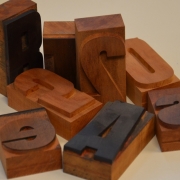An energy revolution is on the horizon, in which both utilities and consumers will produce and sell electricity. Blockchain technology is already being tested in a number of different places. For example in New York State it is being tested as a way of selling solar energy between neighbours and in Germany one power company is running a pilot to see if blockchain utilities technology can authenticate and manage the billing process for autonomous electric-vehicle charging stations.
It is possible that in the future blockchain technology could offer a low cost, reliable way for financial and operational transactions to be recorded across a network with no central point of authority. It may also be used as a way of updating the centralized system currently in operation in many places, replacing it with a hybrid system comprising of both large power plants and microgrids powered by sources such as solar energy. This would increase the reliability and efficiency of the current system and in many cases increase the distribution of renewable energy.
The potential of Blockchain Utilities:
The current focus is on the potential for this technology to enable peer-to-peer energy trading. What is unclear however is how soon this technology can be scalable. For example, in the previously mentioned project in New York each participant had to invest in a computer with a blockchain node. This investment was required for the individual to be able to sell the power generated by their solar panels to neighbours. The nodes in the computers are needed to validate and share the information, minimising the possibility of downtime or interference with the data. The more data that needs to be passed along, the more computing power needed.
However, it is possible that blockchain could be used for other purposes including a trading system in which businesses could have the option of trading their option to use electricity at a given time. This would mean that a factory would be able to sell the electricity it doesn’t use during down time to a factory in need of additional power. This system would therefore provide significant efficiency gains for operators.
Furthermore, it is also thought that blockchain could be used as a way of speeding up the process of changing power suppliers. It can currently take a long period of time for consumers to switch power suppliers. This process could be shortened to a day with the use of blockchain. A British start up is working to develop a blockchain platform that would allow consumers to switch suppliers within a day.
The future of Blockchain Utilities:
As with any new technology, further testing needs to be conducted to ensure reliability and to overcome any potential barriers. If proven to be reliable however, this technology could revolutionise the blockchain utilities sector, enabling the transition towards a more distributed world. So while initially blockchain may be regarded as a disruptive technology that the industry should avoid, it has the potential to become an essential tool for improving the reliability and efficiency of the sector as a whole. If established firms in this industry seize this opportunity, they may be the force that drives the transition towards a decentralised future.










Leave a Reply
Want to join the discussion?Feel free to contribute!